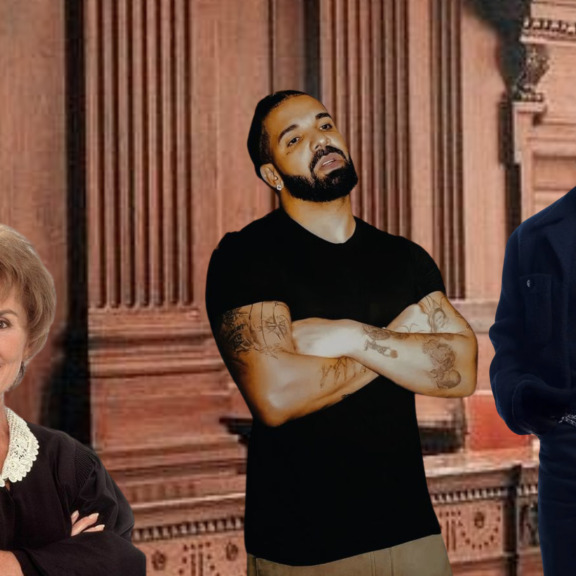
Drake lost his feud with Kendrick Lamar so badly he tried to sue. On Oct. 9, he lost the lawsuit too.
Drake filed a defamation lawsuit earlier this year against his record label, Universal Music Group, for releasing and promoting Lamar’s diss track “Not Like Us,” which he claimed caused “substantial harm” to his reputation.
A judge dismissed the suit, ending a nine-month legal battle, but leaving fans like me with a sour taste in our mouths.
If Drake can sue any time he gets offended, that sets a dangerous precedent for rap battles — and creative expression in general.
Since 2013, Lamar and Drake have been like toxic exes, constantly in an on-again, off-again feud.
The two artists have gone back-and-forth since Lamar name-dropped Drake in his feature on Big Sean’s “Control,” swapping references and insults across multiple albums.
The feud reached a climax after Lamar dropped “Like That” in March 2024, featuring the notorious line, “Motherfuck the big three … it’s just big me.”
In April and May 2024, Drake and Lamar traded four direct diss tracks, escalating the feud with each new release.
Kendrick put out his fourth and final diss, “Not Like Us,” on May 4, 2024, and within a day, Drake responded with his final diss, “The Heart Part 6”.
Like most people, I think Kendrick won this one.
He dismantled Drake, labelling him a pedophile and a colonizer, all while turning the diss into a Grammy-winning, Super Bowl halftime show hit.
If Drake’s weak rebuttal wasn’t the final nail in the coffin, his attempt to sue Universal Music Group definitely was.
Like a child who didn’t get what he wanted — instead of owning his loss — he tried to win by whining to the courts.
While accusations of pedophilia shouldn’t be thrown around lightly, Drake cannot call himself a victim when he willingly played into the spectacle of the feud.
He threw accusations too, like suggesting that Lamar beat his wife.
As Judge Jeannette A. Vargas succinctly put it in her written opinion: “In the context of this rap diss battle, no reasonable person would listen to ‘Not Like Us’ and assume that Lamar uniquely had access to credible, provable facts that revealed Drake to be a pedophile.”
For me — who is hopefully a “reasonable person” — the diss track served as entertainment and not a factual statement about Drake’s actions or character.
That’s why it feels unnecessary for Drake and his team to argue that Lamar and Universal were trying to cause “consumer hysteria.”
As a listener, it’s simply not that deep.
Even without its immature and hypocritical elements, this lawsuit would have caught the media’s attention because of its blatant attempt to stifle creative expression.
Universal released a statement after the suit was tossed, saying, “From the outset, this suit was an affront to all artists and their creative expression and never should have seen the light of day.”
It’s true. If Drake won this suit, how could any artist engage in a rap battle again?
It’s hard to make good art if you’re constantly second-guessing what you write, worried you’re about to get sued.
Drake somehow makes it onto my Spotify Wrapped year-after-year, so I would consider myself a relatively loyal fan, but I am disappointed by this lawsuit. It sets a concerning precedent that creative expression can be limited simply because it offends or criticizes someone in the public eye.
Censorship seems to be becoming increasingly common, and we cannot afford to advocate for silencing our peers because we don’t like what they’re saying.
This lawsuit is more than a feud. We should take this as an opportunity to reflect on what artists we support, and be grateful that creative freedom prevailed over attempts to stifle it.






